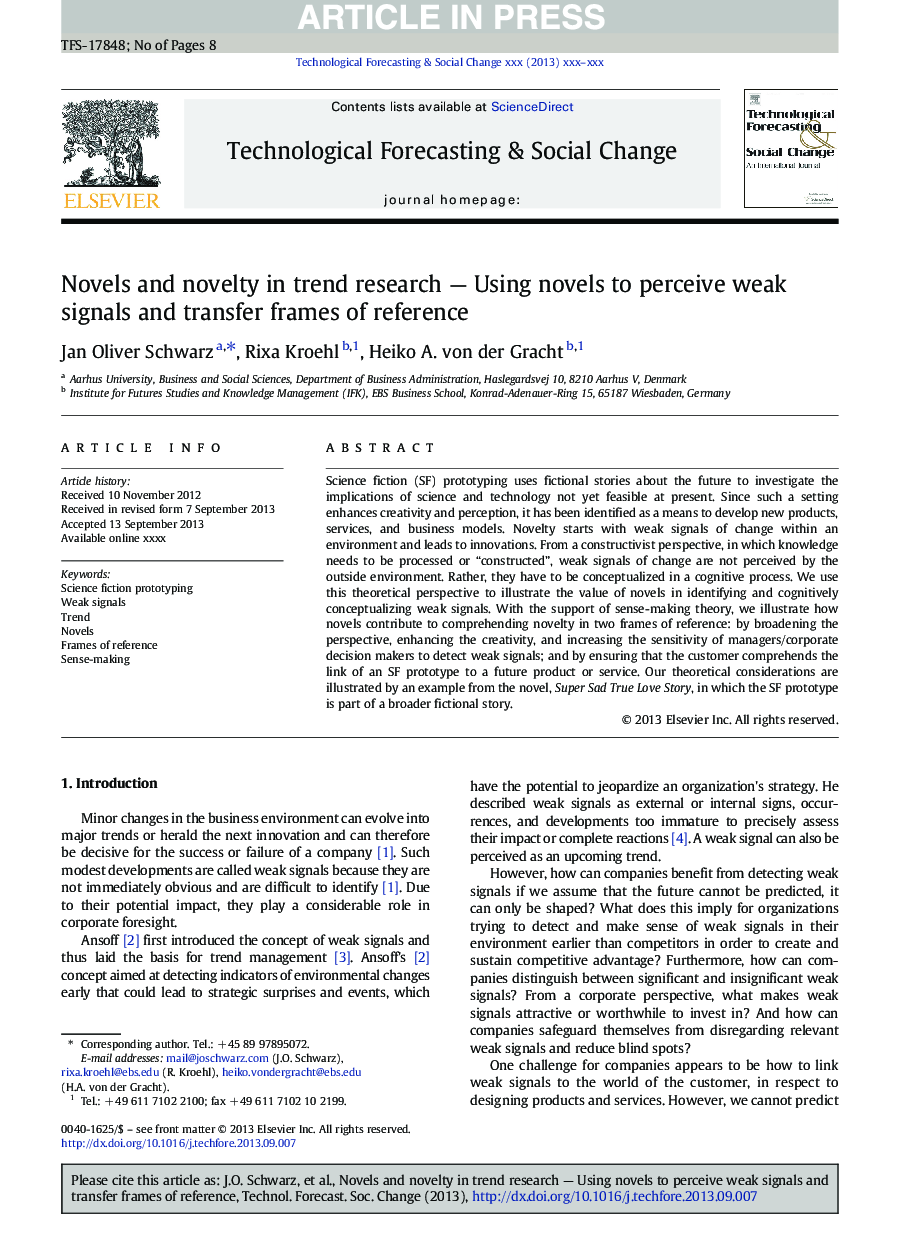| Article ID | Journal | Published Year | Pages | File Type |
|---|---|---|---|---|
| 7257334 | Technological Forecasting and Social Change | 2014 | 8 Pages |
Abstract
Science fiction (SF) prototyping uses fictional stories about the future to investigate the implications of science and technology not yet feasible at present. Since such a setting enhances creativity and perception, it has been identified as a means to develop new products, services, and business models. Novelty starts with weak signals of change within an environment and leads to innovations. From a constructivist perspective, in which knowledge needs to be processed or “constructed”, weak signals of change are not perceived by the outside environment. Rather, they have to be conceptualized in a cognitive process. We use this theoretical perspective to illustrate the value of novels in identifying and cognitively conceptualizing weak signals. With the support of sense-making theory, we illustrate how novels contribute to comprehending novelty in two frames of reference: by broadening the perspective, enhancing the creativity, and increasing the sensitivity of managers/corporate decision makers to detect weak signals; and by ensuring that the customer comprehends the link of an SF prototype to a future product or service. Our theoretical considerations are illustrated by an example from the novel, Super Sad True Love Story, in which the SF prototype is part of a broader fictional story.
Related Topics
Social Sciences and Humanities
Business, Management and Accounting
Business and International Management
Authors
Jan Oliver Schwarz, Rixa Kroehl, Heiko A. von der Gracht,
